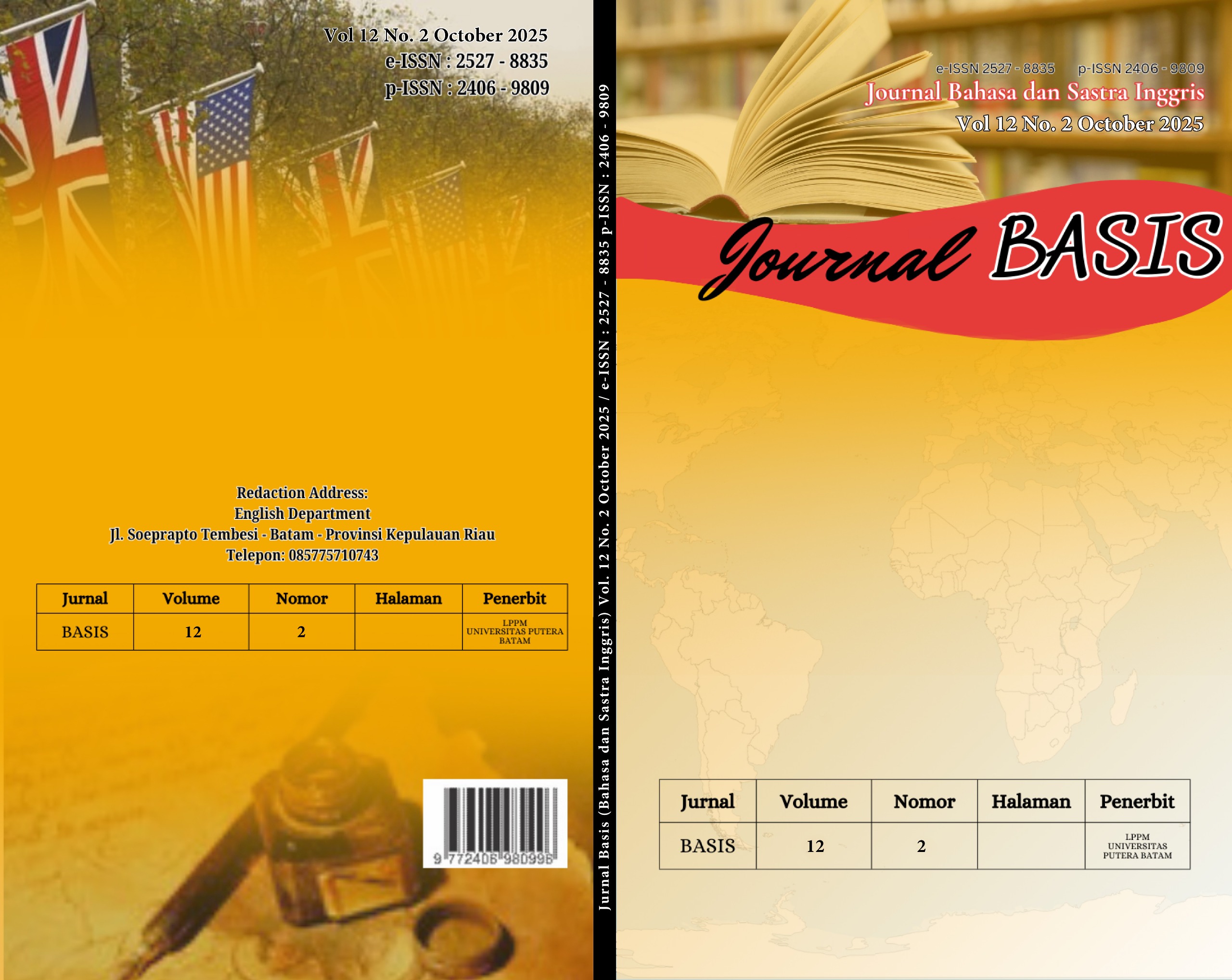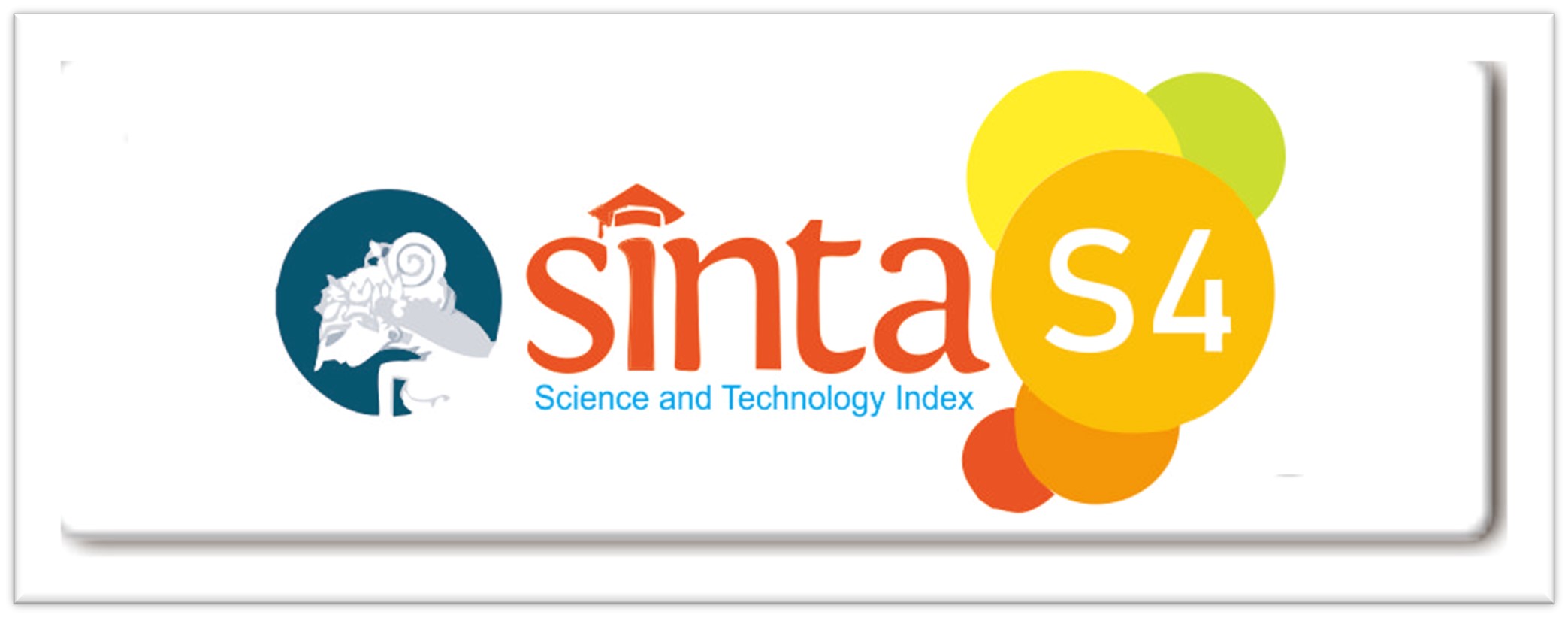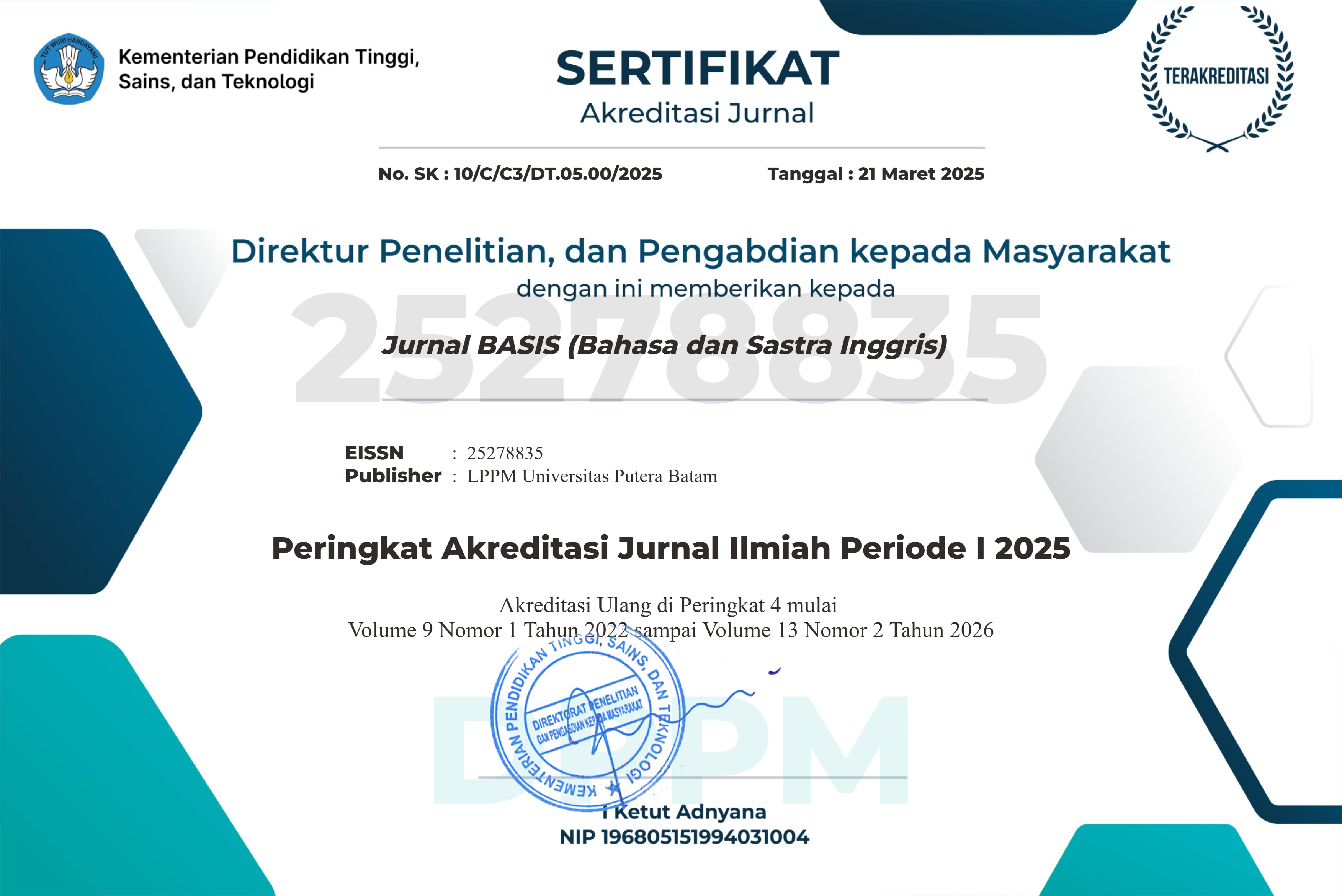THE EFFECTIVENESS OF QUIZLET IN TEACHING VOCABULARY TO EFL STUDENTS TO ELEVENTH-GRADE STUDENTS AT SMA NEGERI 1 CIKANDE SERANG
DOI:
https://doi.org/10.33884/basisupb.v12i2.10676Keywords:
Digital Learning; Senior High School Students; Quizlet; Quasi-Experimental Design, VocabularyAbstract
This study examined the effectiveness of the Quizlet application in teaching vocabulary to eleventh-grade students at SMA Negeri 1 Cikande, Indonesia. The study addressed the persistent challenge of limited vocabulary mastery in English classrooms, where traditional teaching methods often dominate and technology integration remains minimal. Using a quantitative approach with a quasi-experimental design, two classes participated: the experimental group (n = 42) received vocabulary instruction through Quizlet, while the control group (n = 42) was taught using conventional methods. Both groups completed pre-tests and post-tests to measure vocabulary knowledge, including meaning, form, and usage. Statistical analyses, such as normality, homogeneity, and independent sample t-tests, were conducted using SPSS version 30. Results showed that the experimental group’s mean score increased from 54.64 to 83.57, while the control group improved from 66.43 to 75.60. Despite starting from a lower baseline, the experimental group achieved greater gains, indicating a significant difference (p < 0.05) between the two groups. These findings confirm the positive impact of Quizlet on students’ vocabulary learning. The study concludes that Quizlet proved to be an effective and engaging tool for improving students’ vocabulary mastery and recommends integrating Quizlet into English vocabulary instruction to enhance motivation and learning outcomes.
References
Arrosyid, R., & Pradana, S. A. (2021). Philosophical Translation Analysis of Jeremy Munday’s Introducing Translation Studies. English Education: Jurnal Tadris Bahasa Inggris, 14(1), 1–13. https://doi.org/10.24042/ee-jtbi.v14i1.9199
Barr, B. (2016). Checking the Effectiveness of Quizlet as a Tool for Vocabulary Learning. The Center for ELF Journal, 2(1), 36–48. http://libds.tamagawa.ac.jp/dspace/handle/11078/359
Çinar, İ., & Arı, A. (2019). The Effects of Quizlet on Secondary School Students’ Vocabulary Learning and Attitudes Towards English. Asian Journal of Instruction, 7(2), 60–73. https://quizlet.com/tr
Davie, N., & Hilber, T. (2015). Mobile-assisted language learning: Student attitudes to using smartphones to learn English vocabulary. Proceedings of the 11th International Conference on Mobile Learning 2015, ML 2015, 70–78.
Fatoni, A. U., & Baqi, F. A. (2022). Literature Review of English Online Learning Using Technological Pedagogical and Content Knowledge. Proceeding Aiselt, 107–118. https://jurnal.untirta.ac.id/index.php/aiselt/article/download/17138/9754
Fitri, N. (2018). Improving students’ vocabulary mastery by using short English movie at the eleventh grade of SMA N 8 kota Jambi. Jelt : Journal Of English Language Teaching, 2(2), 73–80.
Ghanbari, N., & Nowroozi, S. (2021). The practice of online assessment in an EFL context amidst COVID-19 pandemic: views from teachers. Language Testing in Asia, 11(1). https://doi.org/10.1186/s40468-021-00143-4
Grogan, M., Lucas, M., & Takeuchi, O. (2018). Encouraging and Motivating Vocabulary Development. The TESOL Encyclopedia of English Language Teaching, February, 1–6. https://doi.org/10.1002/9781118784235.eelt0728
Mandasari, B., & Oktaviani, L. (2018). English Language Learning Strategies: an Exploratory Study of Management and Engineering Students. Premise: Journal of English Education, 7(2), 61. https://doi.org/10.24127/pj.v7i2.1581
Rizky Setiawan, M., & Wiedarti, P. (2020). The effectiveness of quizlet application towards students’ motivation in learning vocabulary. Studies in English Language and Education, 7(1), 83–95. https://doi.org/10.24815/siele.v7i1.15359
Rohmiyati, Y., & Asiah, N. (2024). Exploring motivation and improving English speaking proficiency: A literature study on role-play method. Cendikia : Media Jurnal Ilmiah Pendidikan, 14(5), 458–465.
Sari, D. E. (2019). Quizlet: Aplikasi Pembelajaran Berbasis Smartphone Era Generasi Milenial. Jurnal Pendidikan Ilmu Sosial, 29(1), 9–15. https://doi.org/10.23917/jpis.v29i1.8150
Simanjuntak, H. L. (2021). Vocabulary Learning Strategies Used by Undergraduate Students. Scope : Journal of English Language Teaching, 6(1), 16. https://doi.org/10.30998/scope.v6i1.9976
Simatupang, G. E., Sinambela, R., Putri, A. O., Anggraini, D. F., Purba, T. M., Herman, H., Saragih, S. T., Hasibuan, R., & Siahaan, S. H. (2023). Meningkatkan Kosakata Bahasa Inggris Melalui Lagu Bahasa Inggris di Kelas 4 SD Swasta GKPS 2 Pematang Siantar. Beru’-Beru’: Jurnal Pengabdian Kepada Masyarakat, 2(1), 16–25. https://ojs.unsulbar.ac.id/index.php/jipm/article/view/2745
Suryaratri, R. D., Prayitno, E. H., & Wuryani, W. (2019). The Implementation of Multi-sensory Learning at Elementary Schools in Jakarta. JPUD - JurnaSuryaratri, R. D., Prayitno, E. H., & Wuryani, W. (2019). The Implementation of Multi-Sensory Learning at Elementary Schools in Jakarta. JPUD - Jurnal Pendidikan Usia Dini, 13(1), 100–113. Https://Doi.Org/10.21009/10.21009/Jpud.131.
Tanjung, A. P., & Daulay, S. H. (2022). Quizlet And Vocabulary Mastery: Students’ Perception. English Language and Literature International Conference (ELLiC) Proceedings., 5(1), 267–276.
White, H., & Sabarwal, S. (n.d.). Quasi-Experimental Design and Methods.













 JURNAL BASIS (BAHASA DAN SASTRA INGGRIS)
JURNAL BASIS (BAHASA DAN SASTRA INGGRIS)
